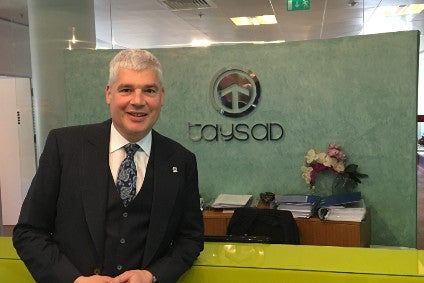
Turkey’s automotive suppliers association says the country will have to adapt to new technology and processes as it looks to maintain competitiveness and more than double exports by 2023.
The auto sector is by far the largest industrial contributor to Turkey’s exchequer, employing hundreds of thousands of people for domestic consumption, but also significantly for a major export drive which accounts for US$29bn of income.

Discover B2B Marketing That Performs
Combine business intelligence and editorial excellence to reach engaged professionals across 36 leading media platforms.
Despite a relatively healthy outlook for the industry, there is still some uncertainty surrounding political events in Turkey, which saw hefty civil unrest two years ago with tanks on the streets of Ankara and an attempted coup d’etat.
However, a relatively stable political environment since that attempt has allowed the auto sector to thrive, particularly for exports but also as domestic car ownership is only around half that of Western Europe at 300 vehicles per 1,000 population.
“We should look to competitiveness,” Turkish automotive suppliers association, TAYSAD vice president, Albert Saydam told just-auto in the organisation’s headquarters in a component cluster to the West of Istanbul. “After the latest contract signed between the workers’ union and employers’ union, I think our suppliers are at the limit of being competitive.
“That means some of our members have problems to compete and meet cost structures required by the automotive industry, automisation and increased productivity; that is a very difficult transition.
“It is the first challenge of Turkish industry. The second is Turkish people are very talented making sales in traditional geographies, but the world is changing and we have to come up with new methods. The Balkans and the Middle East are traditional markets with short flights where you can carry [component] samples [for example] in your luggage, but the Far East and Latin America have completely different cultures and it takes one day to go there.
“In our companies, people enjoy saying their companies [are] following the technology, to tell it to their families their company is adapting technology to needs. One skill of Turkish people – we love to use technology. One way to compete with low-cost countries – particularly China – is to automise everything. It is a must – we don’t need a kind of reason to follow this revolution.”
Established in 1978, TAYSAD’s 404 members account for US$25bn turnover, with a mix of Turkish and overseas companies, taking advantage of Ankara’s keen interest – and sometimes incentives – for the industry which government views as essential to the national economy.
As an organisation well positioned to take the pulse of Turkish industry, TAYSAD is a member of European automotive suppliers association CLEPA and is aiming to play a more active role in the Brussels-based body as Ankara and the European Commission look to renew the Customs Union, which facilitates so much trade between the two.
TAYSAD – although a completely private body – also has Ankara’s ear when it comes to Turkey’s largest manufacturing sector and is engaged in discussing challenges with the Ministries under whose remit the auto sector falls.
“One of our targets is to be more active in CLEPA,” added Saydam. “We want to be on the board also. We [Turkey] are a candidate of the European Union [EU] and Turkish people are still supporting to be a member of the EU with a majority.
“Our Ministry of Economy and Ministry of Industry are really paying attention to our voice. They also request from us, opinions, proposals, ideas to improve things in Turkey. For example, [there is] an event on 11 April in Bursa organised by the Ministry of Industry [to get] all stakeholders around the table [to see] how we can double exports within a certain time.
“There is today a target for 2023 – for that year it is US$70bn [and] 2023 is the 100th anniversary of the [founding of ] the Turkish Republic. Five years ago our exports were more or less US$15bn and people said, is five times [more] possible? Right now we are at US$29bn.
“It is half calculation and half improvisation and we are very good at improvisation. To reach that, we have to welcome at least one [more] major automotive investor in Turkey. Having Ford here has opened so many doors to Turkish suppliers. So if you have one additional investor in Turkey, if one new player comes to Turkey, it will also open new doors.”






